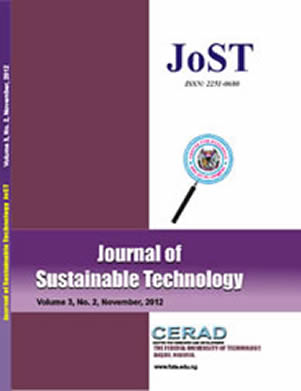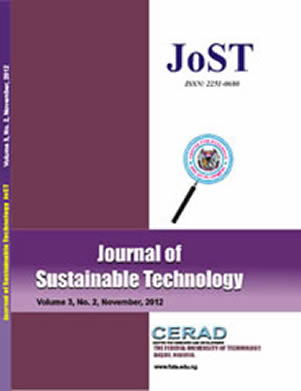The effectiveness of composted biodegradable municipal waste and inorganic fertilizer in improving soil fertility and performance and yield of maize was compared in research conducted in Akure (7015’N, 5012’E) Nigeria in 2007, 2008 and 2009. The experimental design was a randomized complete block with four treatments replicated three times. The four manure treatments were 0 kg/ha manure, 2t/ha composted municipal waste, 2t/ha composted municipal waste plus urea plus single super phosphate (organo-mineral) and 300 kg/ha NPK 15-15-15. Downy Mildew and Streak Resistant Maize seeds (DMRESR) obtained from the Ondo State Agricultural Development Project (OSADEP), Akure were planted at 60 x 30 cm to give a plant population of 55,000 stands per hectare. Pre-planting and post planting soil analysis of experimental plots were carried out while growth and yield parameters of maize were taken. Cost benefit analysis was carried out to determine profitability. The result showed that the addition of manure improved the soil fertility with significantly (P< 0.05) higher yield observed in the manured plots compared with the plot without manure application. In the first year 2007 cropping year, the highest maize yield of 1645 kg/ha was obtained in plot treated with 300 kg/ha maize NPK while in the second year 2008 and third year 2009, highest yield of 1656 kg and 1880 kg respectively were obtained in 2 t/ha composted municipal waste + Urea + SSP (Organo-mineral). These increases also reflected in soil fertility increase in soil pH, organic matter, P, K, Ca, Mg and Na. The reason for improved maize yield performance in 2008 and 2009 could be due to the combined sources of nutrients from the compost and inorganic fertilizers which subsequently improved soil fertility.
PAPER TITLE :THE COMPARATIVE EFFECTIVENESS OF COMPOSTED BIODEGRADABLE MUNICIPAL WASTE AND INORGANIC FERTILIZER AS
JOURNAL Of SUSTAINABLE TECHNOLOGY | VOLUME 2 NUMBER 1 2011
Paper Details
- Author(s) : ADEKAYODE, F.O., OMOWOLE, S.A. and AMODU, T.A
- Abstract:



